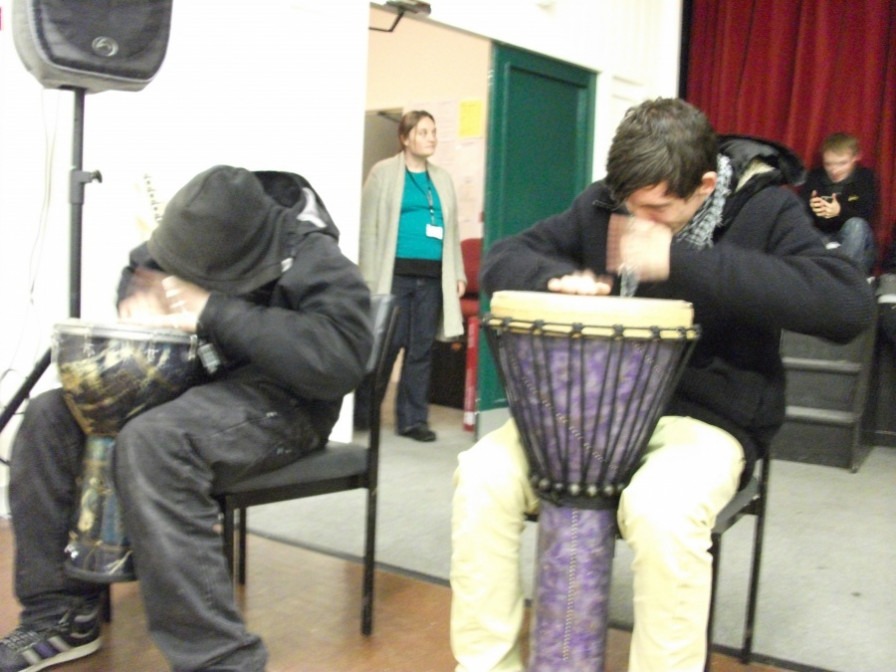Other adults in your session: Help or Hindrance?

One of the key challenges when delivering music activities with Children in Challenging Circumstances are the other adults in that setting. These people can be teachers, youth/case workers, carers or volunteers. Below are our findings but we would also love to hear your experiences.
During a CPD session with our Musical Inclusion partners, we discussed this topic which left us with as many questions as answers.
When we arrive to work in a setting that belongs to a partner organisation, it comes with a code of behaviour for adults as well young people. For instance, in schools young people have to call staff by their surname and we might ask them to use our first names.
Our discussions acknowledged that it must be a challenge for some adults having us coming in as it could be seen as a challenge to their relationship with the young people and that it could upset the group dynamic. Also those adults with previous negative experiences of music might perceive us as a threat that will embarrass them in front of the young people.
Often the people who ask us to come into their organisation to deliver are not the adults that we will be working with. This can easily lead to misunderstandings around aims and approaches.
If we look to the Music Education Code of Practice, it would fall within “work well with people”, but it's a lot more complicated than that.
We realised that every situation is different and is dependent on your people and negotiation skills but we also agreed that we would be very interested to hear from other practitioners as to how they deal with these challenges.
From the discussions we have had, there appears to be four common scenarios and relationships that typically happen in these setting but they all raise interesting questions.
1) The adults see our delivery as an excuse to have a break and disappear, leaving you to manage the behaviour of the young people. This has obvious safeguarding implications but many of us will have experienced it at some point. How do you/have you dealt with this?
2) The adults stay but refuse to participate stating that they are “not musical”. This sends a very mixed message to the young people they work with, but what have you tried that works in this situation
3) The adults stay but don't recognise your ability to manage the behaviour that you find acceptable and so constantly interrupt the flow of the session by disciplining the young people.
4) The adults join in, are open to the experience and only step in when needed. If this is your experience then how did you set it up? What were the agreements you put in place or developed with the other adults and how did you state your ideal working relationship to them in a way that they understood and accepted?
